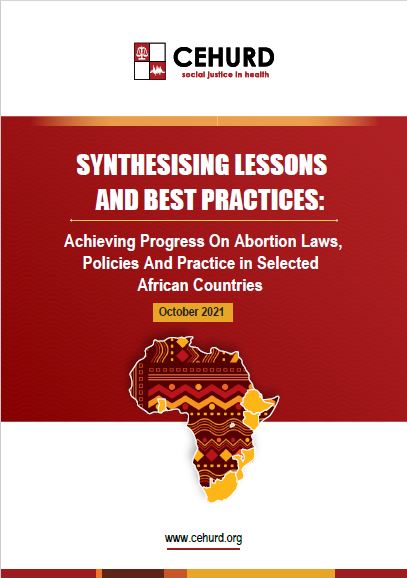This paper is written against the backdrop of the historical criminalisation of abortion and its causal connection with a heavy burden of unsafe abortion-related mortality and morbidity in sub-Saharan Africa. It is based on two main premises: first, that abortion remains socially stigmatised and legally restricted such that the law is a crucial gateway to safe abortion services in Uganda as elsewhere on the continent; and second, that it is well established that laws that permit abortion on broad grounds impact positively on unsafe abortion-related mortality and morbidity provided the laws are implemented effectively and safe abortion services are available and accessible.
CEHURD, in partnership with Uganda National Tobacco Control Association (UNTCA) and with support from UNDP, commissioned a study in November, 2013 to assess the status of NCDs in Uganda, analyze perceptions and use of tobacco among youths in universities in Kampala and Mukono districts. Hence a meeting of key stakeholders was convened to review the preliminary findings and to suggest recommendations.
Understanding culpability for sexual harassment in Uganda.
Unsafe abortions constitute a huge burden to the health system. Approximately 40% of admissions for emergency obstetric care in Uganda are a result of unsafe abortion. Yet unsafe abortion and its consequences come at a premium: each year, the health system spends up to Ushs7.5 billion on treating abortion related complications.
This report presents a review of the public health laws in Kenya, Uganda and Tanzania that impact on equity in health to assess the extent to which the current legal framework addresses public health and health equity, recognising the changing challenges, contexts and policies in all three countries. It has been carried out within the Regional network for Equity in Health in East and Southern Africa (EQUINET) by the Law Faculty, Makerere University and Training and Research Support Centre to present the current status of public health laws in these three countries and make recommendations on

